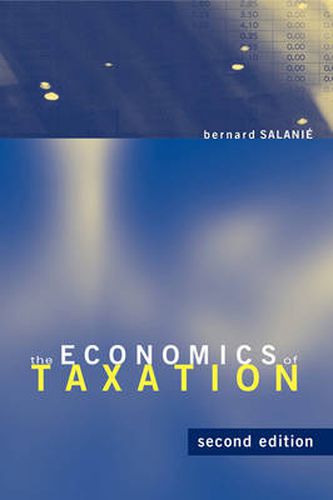Readings Newsletter
Become a Readings Member to make your shopping experience even easier.
Sign in or sign up for free!
You’re not far away from qualifying for FREE standard shipping within Australia
You’ve qualified for FREE standard shipping within Australia
The cart is loading…






This concise introduction to the economic theories of taxation is intuitive yet rigorous, relating the theories both to existing tax systems and to key empirical studies. The Economics of Taxation offers a thorough discussion of the consequences of taxes on economic decisions and equilibrium outcomes, as well as useful insights into how policy makers should design taxes. It covers such issues of central policy importance as taxation of income from capital, environmental taxation, and tax credits for low-income families. This second edition has been significantly revised and updated. Changes include a substantially rewritten chapter on direct taxation; a discussion of recent research in the chapter on mixed taxation; the replacement of the chapter on capital taxation with a chapter on the new dynamic public finance ; and considerations of environmental taxation in both theory and policy chapters. The book is aimed at graduate students or advanced undergraduates taking public finance classes as well as economists who want to learn more about the topic. It combines discussion of theory, empirical work, and policy objectives in compact form. Appendixes provide necessary background material on consumer and producer theory and the theory of optimal control.
$9.00 standard shipping within Australia
FREE standard shipping within Australia for orders over $100.00
Express & International shipping calculated at checkout
Stock availability can be subject to change without notice. We recommend calling the shop or contacting our online team to check availability of low stock items. Please see our Shopping Online page for more details.
This concise introduction to the economic theories of taxation is intuitive yet rigorous, relating the theories both to existing tax systems and to key empirical studies. The Economics of Taxation offers a thorough discussion of the consequences of taxes on economic decisions and equilibrium outcomes, as well as useful insights into how policy makers should design taxes. It covers such issues of central policy importance as taxation of income from capital, environmental taxation, and tax credits for low-income families. This second edition has been significantly revised and updated. Changes include a substantially rewritten chapter on direct taxation; a discussion of recent research in the chapter on mixed taxation; the replacement of the chapter on capital taxation with a chapter on the new dynamic public finance ; and considerations of environmental taxation in both theory and policy chapters. The book is aimed at graduate students or advanced undergraduates taking public finance classes as well as economists who want to learn more about the topic. It combines discussion of theory, empirical work, and policy objectives in compact form. Appendixes provide necessary background material on consumer and producer theory and the theory of optimal control.